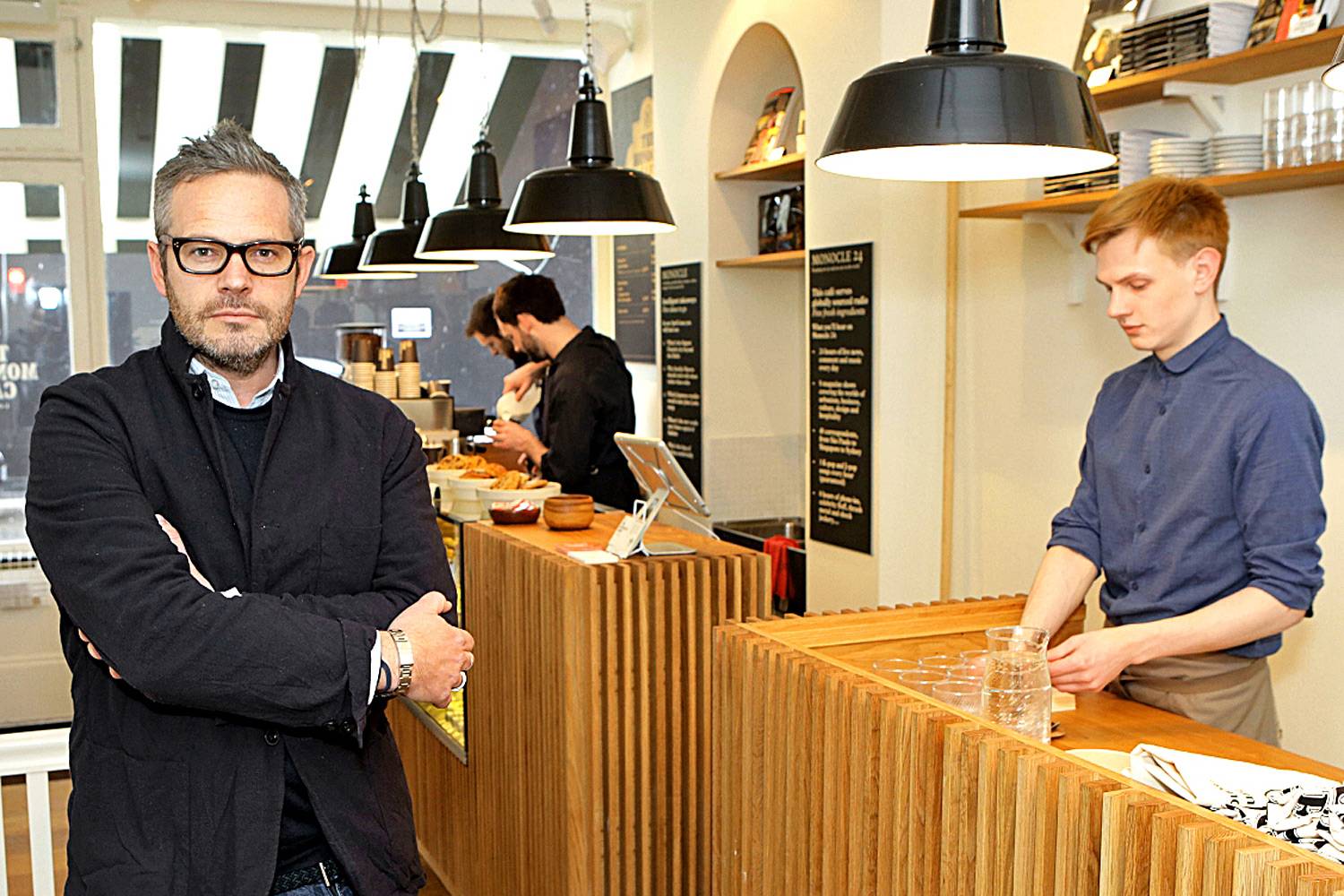
Depois da sua visita a Lisboa na passada segunda feira, Tyler Brûlé dedica à nossa cidade, uma das suas crónicas no Financial Times. E assim se abrem os panos, no palco da Primavera.
A hub on the edge of Europe

The IATA code LIS put in a rare appearance on my itinerary last week. Work and pleasure seldom take me into the Lusophone orbit (no weekenders in the Comporta, no connecting flights to Manaus, no business development in Maputo), so Lisbon is somewhere I haven’t spent much time.
As the little Airbus fought through high winds and driving rain that Monday morning, I was still hoping the low clouds would part and that I’d be joining my colleagues and hosts for lunch on a sun-drenched terrace in the city’s old town. Sadly, the weather only deteriorated and what could have been a breezy spring lunch with views across the harbour turned into a more cosy, wintry lunch at the new-ish and very nice hotel Memmo Alfama (a good option if you’re looking for an Easter getaway).
The Portuguese capital is a bit of a blind spot for me – one of those cities that I feel I should know much better and makes me feel a little insecure, as if I’m missing out on a very decadent party. In many ways it’s like Berlin – a bit mysterious, grand, kind of funky, cheap rents and fortunate enough to have an airport close to the city centre. Just as Berlin feels very east (despite its generally central position within Europe), Lisbon feels very west, very on the edge, very much an outpost.
After lunch I had a little time to tour around the city before heading off for interviews. First impression? Economic downturns can be a good thing – at least if you’re the capital of a former colonial superpower and still have history on your side. Where too many cities have been destroyed by the heavy hands of “delicate restoration” (read: workers with sandblasters not sufficiently supervised) and of unsympathetic gentrification, Lisbon is caught in a lovely little time-warp that’s left it free of silly, spindly street furniture, identical-looking restaurants and faceless developments.
No doubt there are many in both the public and private sectors who’d like to see cleaner streets, more even pavements and less graffiti. But all the grit and good signage (Lisbon is heaven for fans of modernist fonts crafted into neon or chunky letters bolted together to spell out the name of a pharmacy) and its little shops specialising in buttons, hats, hosiery and lace are a welcome change from European capitals that have run small businesses out of town and are plagued by all the same dull brands.
If you’re a Swede tired of the flat winter skies of Stockholm, a Scot crying out for a dose of vitamin D, or a Sydneysider looking for an easy lifestyle mixed with Atlantic surf, Lisbon might be just the ticket. For starters, the Portuguese still make things. In fact, manufacturing has been the engine that’s put it at the top of the eurozone’s growth table. Whether you want to make light fixtures or sandals, fine porcelain or delicate underwear, silvery cutlery or fiddly electronics, Portugal probably has a factory already turning out a version of what you need.
For anyone who delights in exploring new cities and sizing up the business opportunities, Lisbon (and I was assured that Porto is even better, though not as well-connected) is probably as good as it gets within the EU.
There may be great opportunities in Gdansk or along the handsome boulevards of Thessaloniki – but for connections to Africa and Latin America and short flying times to Paris, London and Zurich, Lisbon is an ideal place to set up shop – tiny and suited to your seasonal needs or sprawling and ready to export round the world. Virtually every block in central Lisbon offers up spaces to play out all your retail or restaurant fantasies. In the districts beyond the airport there is no shortage of larger facilities to set up specialised ateliers for making furniture or weaving fabrics or for firing up kilns.
If all of this strikes you as quaint and low-tech, then all I can say is: thank heavens. Does the world really need any more airtime devoted to precocious teenagers who have developed yet another digital ding-dong that will probably force markets to collapse? Yes, we all need a bit of technology in our lives but we also need good shoes, snappily cut blazers, rich-hued tiles for bathrooms and kitchens and let’s not forget to put some wine and cheese on the table while we’re at it.
A few years ago, in a very techy and very unconvincing bit of branding, Portugal tried to position itself as “Europe’s West Coast”. Portugal as a European hub with a growing manufacturing base is a far more interesting and sustainable model. From the balcony of the Four Seasons Hotel Ritz (an exceptional piece of modernist architecture that needs to get back to its roots) and later the running track on the roof (all fine hotels should have one), I surveyed the rooftops and got lost in yet another daydream about what life might be like in Lisboa.
Tyler Brûlé is editor-in-chief of Monocle magazine
